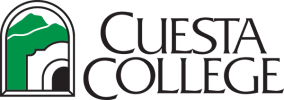
Program Summary
ELEMENTARY EDUCATION: LIBERAL STUDIES WITH CHILD DEVELOPMENT EMPHASIS (PK-6 PREP) - Associate in Arts
The Associate of Arts Degree in Elementary Education: Liberal Studies with Child Development Emphasis (PK-6 Prep) is designed to provide students with a foundational coursework pattern necessary for entering upper-division requirements in a baccalaureate teacher preparation program. This program emphasizes the development of competencies in critical thinking and communication, both spoken and written, while covering essential elementary subject matter. It also includes 14-16 of the 24 PK-3 unit requirements established by the California Commission on Teacher Credentialing. For students seeking to transfer, this pathway is especially well-aligned with the requirements at Cal Poly, San Luis Obispo, offering the most seamless transition for those continuing their education there. The courses within this degree meet the first two year course requirements for the 2+2 Liberal Studies program taught on the Cuesta College campus and the Liberal Studeis program taught at Cal Poly.
All General Education Transfer requirements are already met through the above section.